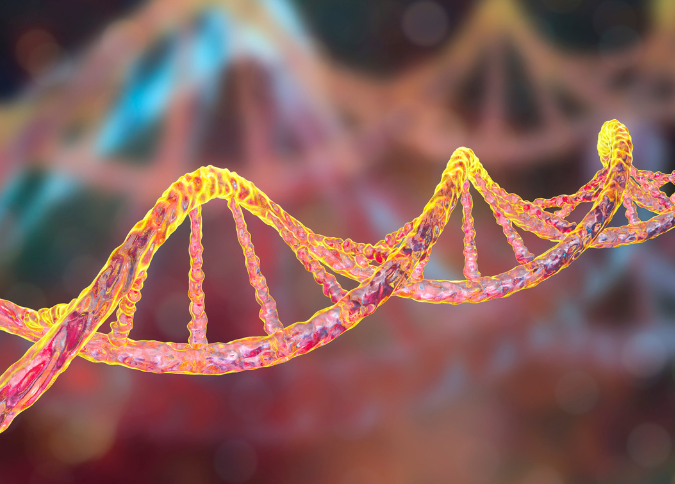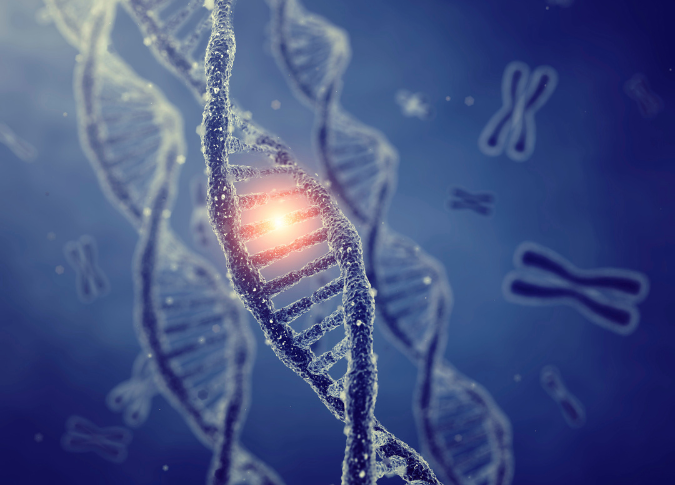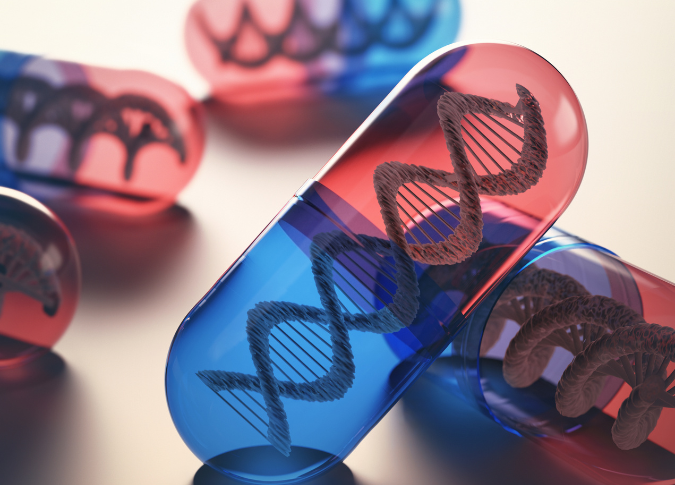Genomics
Genomics plays a crucial role in sports talent identification by providing insights into an athlete’s genetic makeup. This information can help predict an athlete’s potential, tailor training programs, and enhance overall performance.

How important is Genomics?
Genomics adds a critical layer of precision and personalization to sports talent identification. This scientific approach ensures that each athlete’s unique genetic profile is fully understood and leveraged, leading to more effective talent development and higher chances of success in competitive sports.
Lets understand genomics in detail:

Step 1:
Performance-Related Genes
Genes that influence traits essential for athletic success, such as strength, speed, endurance, and recovery. By analyzing these genes, we can gain valuable insights into an athlete’s inherent abilities and potential for improvement. It includes analysis of:
- Strength
- Speed
- Endurance
- Recovery
Step 2:
Injury Risk Genes
Genes that indicate a genetic predisposition to certain types of injuries. By identifying these genes, we can take preventative measures to reduce the likelihood of injuries. These include:
- Ligament and Tendon Strength
- Bone Health


Step 3:
Nutrigenomics
It is the study of how an athlete’s body responds to different nutrients based on their genetic profile. This field helps in creating optimized nutrition plans that can enhance performance and recovery. It include:
- Metabolism
- Vitamin and Mineral Absorption
- Food Sensitivities
FAQ
Genomics involves analyzing an athlete’s DNA to uncover genetic traits related to performance, injury risk, and nutritional needs. This information helps in creating personalized training and nutrition programs, optimizing performance, and preventing injuries.
By identifying genetic traits related to muscle composition, cardiovascular efficiency, and endurance, genomics allows coaches to tailor workouts that leverage an athlete’s strengths and address their weaknesses. It also helps in determining the optimal training intensity and volume based on recovery and fatigue predispositions.
Yes, genomics can identify genetic markers that indicate a predisposition to certain injuries, such as ligament tears or tendon issues. This enables proactive measures like targeted strengthening exercises and proper technique training to prevent injuries. It also guides customized rehabilitation plans for injured athletes.
Nutrigenomics studies how an athlete’s body responds to different nutrients based on their genetic profile. This helps in developing tailored nutrition plans that enhance energy levels, recovery, and performance. It also identifies food intolerances or sensitivities, allowing for dietary adjustments that promote better health.
Genetic markers associated with high performance in specific sports can be identified at a young age, helping to channel young athletes into sports where they are likely to excel. This early identification allows for specialized training from an early stage and creates long-term development plans aligned with the athlete’s genetic potential.
To get started, you can contact our clinic to schedule an initial consultation. Our team will explain the process in detail and help you understand how genomic testing can benefit your athletic development. We will then conduct the necessary tests and provide personalized recommendations based on the results.
Get Started Today
Integrating genomics into sports talent identification represents a forward-thinking approach that aligns with the latest advancements in sports science and medicine.
